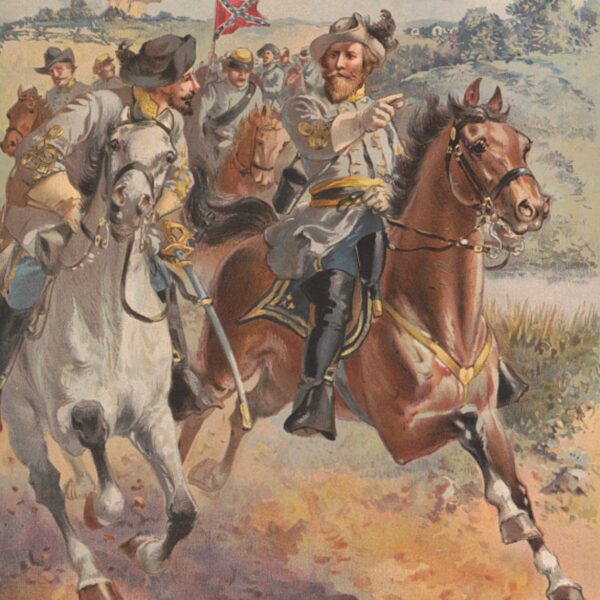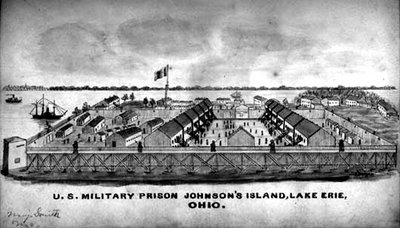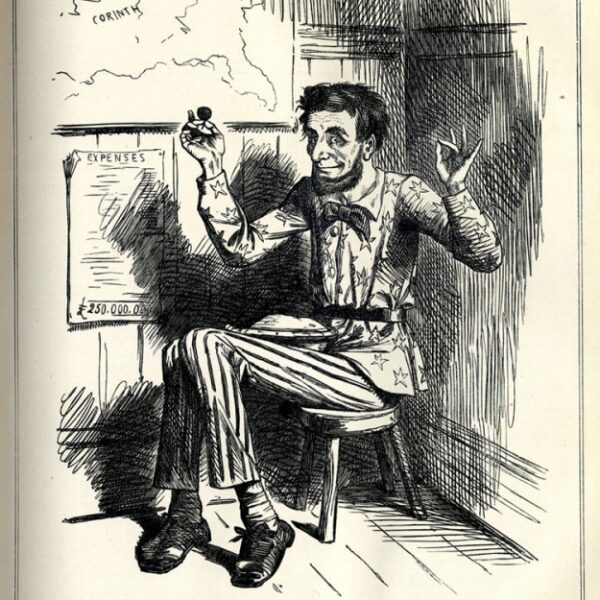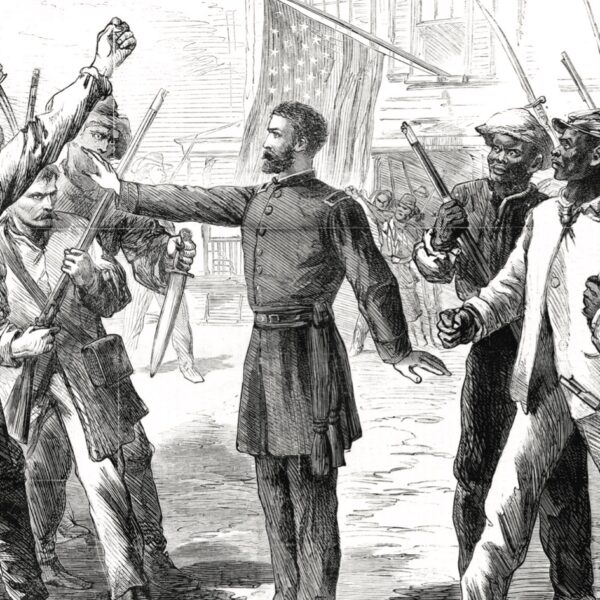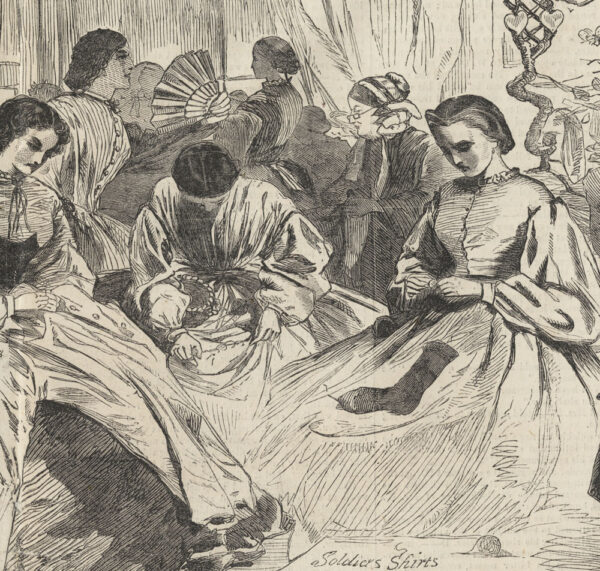 Harper's Weekly
Harper's WeeklyWomen sew items for the troops during the Civil War in an illustration from Harper’s Weekly.
In 1865, the United States Sanitary Commission (USSC), an organization whose volunteer members had worked to support sick and wounded Union troops during the conflict, published a book titled Soldiers’ Letters, from Camp, Battlefield and Prison. Among the many letters included in the volume was one written by an anonymous Union soldier from Vermont, who had been the recipient of a pair of socks sent to him by a young female member of the USSC. Below is the soldier’s letter of thanks (headed “Newport Barracks”) he sent in response, followed by the reply he received from the woman’s family, which contained the sad news of her fate.
Addressed to a young lady who had put her name in a pair of socks, sent to the soldiers from the Aid Society, long after the person to whom written had “passed away.”
Newport Barracks.
You will, in all probability, wonder who this writer is, and how your name was found out by him; but, when you remember you sewed a piece of paper in a pair of stockings, sent by the Sanitary Commission, you will then know how I came to address you. This morning the paper was discovered, and, feeling very grateful for them, I was happy to know where to send an expression of thanks. You, perhaps, did not think they would fall into the possession of a Vermonter, but they have; and I assure you, they are valued as highly as they would have been, had they been received by one from my own State, and my opinion of the Sanitary Commission is better than ever. I think the ladies of the North have done nobly for the boys who have gone to fight for the dear old flag; and the prospect is, that this same flag will soon wave over every State in the Union. Perhaps you have a father or a brother in the army; if so, I know full well the fears you entertain daily of hearing distressing news. But I hope you will be sustained, and enabled to look on the bright side of things.
The above letter was answered by a member of the family, and the following lines sent to the soldier:
Ah, soldier! the offering of thanks fitly given
May never be read by the friend
Who sent with good-will, in her dear handwriting,
The name you so recently penned.
We think of her now, as you think of a comrade
You know you will never more see
At “roll-call” or “drum-beat,” when others assemble
To answer the “shrill reveille.”
You hear his name spoken, and then you remember
How sad and forlorn was the day
You took a last look of all that was mortal,
And silently bore him away.
In early spring-time, before the June roses
Had yielded a breath of perfume,
Before her young heart with sorrow was blighted,
We laid her to sleep in the tomb!
We may not tell now of the grief of the household
When death his dread errand made known;
Or tell of the smitten—now ever lamenting—
The loss of the dearly loved one.
But, stranger, we’ll tell you, how at the leave-taking
She smilingly bade us adieu,
As one who was going to far better mansions,
As only the trusting can do.
She seemed as a seraph entranced with a vision
Of pure unalloyed delight,
In haste to cross over the much-dreaded river,
And join the pure angels in sight.
With songs on her lips, and leaning on Jesus,
Rejoicing, we know she went where
The weary do rest, henceforth and forever:
Oh, soldier! do strive to get there!
On the morning her pure spirit left its tenement, our village was clothed in gladness on the return of an officer left on the battle-field as dead, at the battle of Chancellorsville. Our flags had been at half-mast, and his friends had put on mourning, when, after two weeks or more, intelligence was received he had been paroled, and was doing well in hospital.
On his arrival home the bells were rung, and though the brave officer, instead of returning with the flush of health, was so pale and emaciated it made us sad to see him, nevertheless the band greeted him with “Home again,” and the young lady referred to, on that morning rode out for the last time. Ere long she kissed the dear ones about her, sang verses of a hymn, folded her hands, and thus passed away.
Related topics: women

